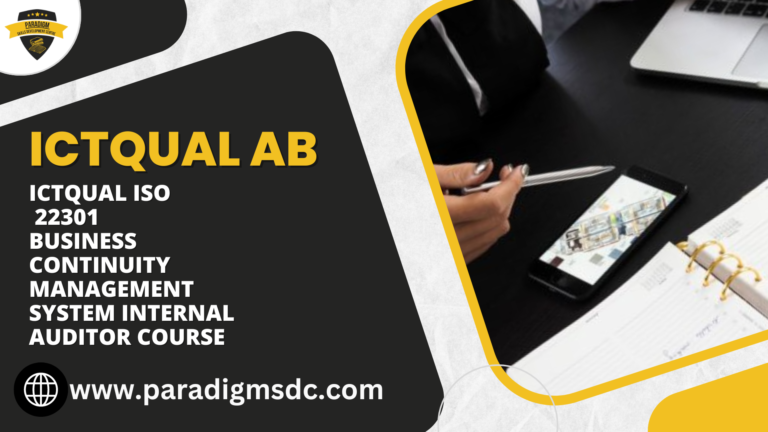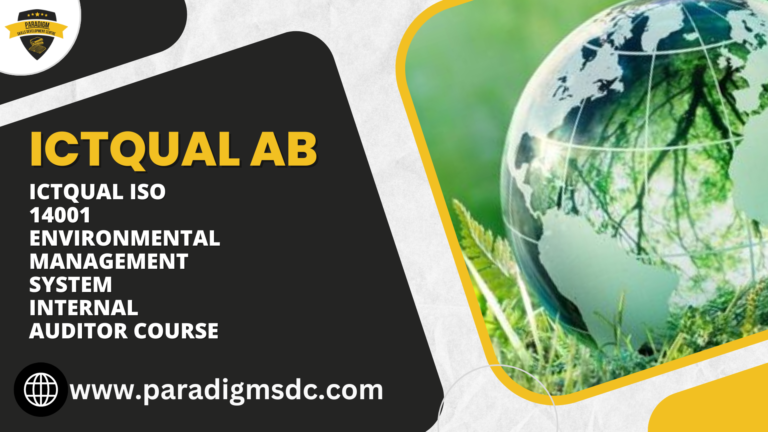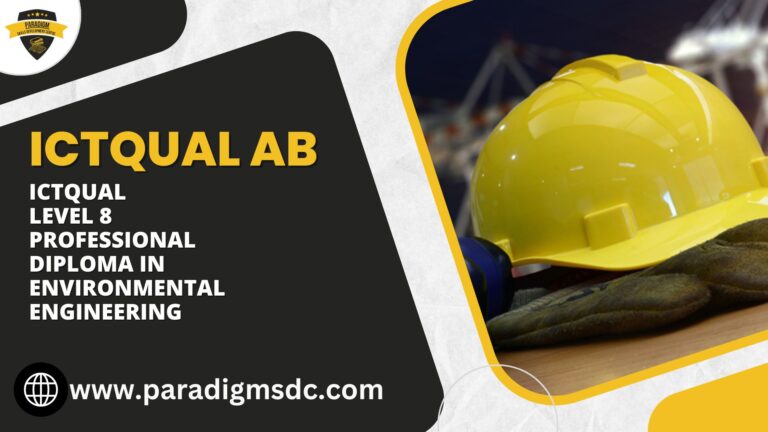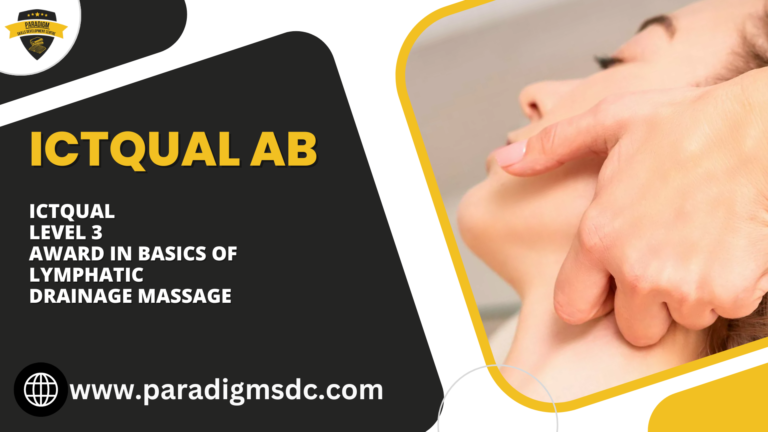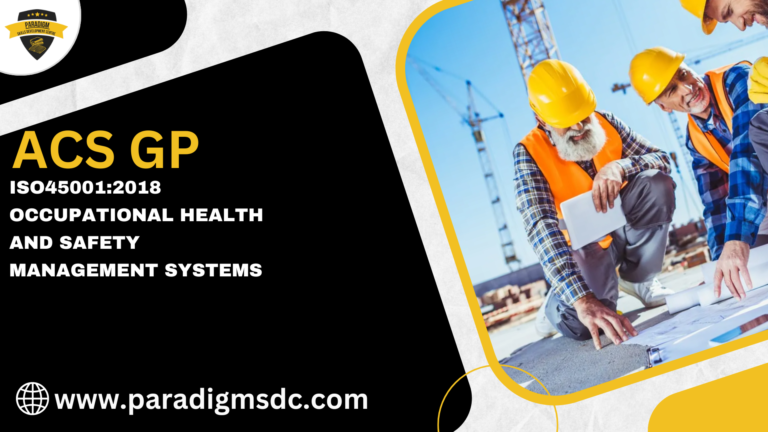Course Introduction
The ICTQual Level 3 Award in Paediatric First Aid is a comprehensive course designed to equip individuals with essential first aid skills specifically tailored for infants and children. This qualification is crucial for those who work or intend to work in environments where the welfare of young children is paramount. Whether you are a teacher, childcare provider, or a parent, this course will provide you with the confidence and competence to handle paediatric emergencies effectively.
Course Overview
The course covers a wide range of first aid scenarios that are common in paediatric settings. It emphasizes the importance of rapid and appropriate response to emergencies to ensure the safety and well-being of children. The training includes both theoretical knowledge and practical skills, ensuring participants are well-prepared for real-life situations.
Course Study Units
- Introduction to Paediatric First Aid
- Roles and Responsibilities of the First Aider
- Assessment of the Paediatric Patient
- Cardiopulmonary Resuscitation (CPR) and Automated External Defibrillator (AED) Use
- Choking and Airway Management
- Management of Bleeding and Wounds
- Management of Medical Emergencies
- Injury Assessment and Fracture Management
- Environmental Emergencies and Poisoning
- Paediatric First Aid in Special Situations
Learning Outcomes
By the end of the course, participants will be able to:
Introduction to Paediatric First Aid
- Understand the importance of paediatric first aid in ensuring the safety and well-being of children.
- Recognize legal and regulatory requirements related to paediatric first aid.
- Identify key objectives and components of paediatric first aid training.
Roles and Responsibilities of the First Aider
- Define the role and responsibilities of a first aider in paediatric emergencies.
- Understand legal and ethical considerations in providing paediatric first aid.
- Demonstrate effective communication and teamwork skills in emergency situations.
Assessment of the Paediatric Patient
- Conduct primary and secondary assessments of paediatric patients.
- Recognize signs and symptoms of common paediatric emergencies.
- Prioritize care based on the severity of injuries or illnesses.
Cardiopulmonary Resuscitation (CPR) and Automated External Defibrillator (AED) Use
- Demonstrate proper techniques for performing CPR on infants, children, and adolescents.
- Utilize an automated external defibrillator (AED) effectively in paediatric cardiac arrest scenarios.
- Respond appropriately to changes in the paediatric patient’s condition during CPR and AED use.
Choking and Airway Management
- Recognize and respond promptly to choking emergencies in children and infants.
- Implement appropriate techniques for clearing airway obstructions.
- Provide preventative measures to reduce the risk of choking incidents in paediatric settings.
Management of Bleeding and Wounds
- Control bleeding using direct pressure, elevation, and pressure points.
- Clean and dress wounds in children effectively to prevent infection.
- Identify and manage severe bleeding requiring immediate intervention.
Management of Medical Emergencies
- Identify common paediatric medical emergencies, such as asthma attacks, seizures, and allergic reactions.
- Administer medication, including epinephrine, for anaphylaxis according to established protocols.
- Recognize signs of serious illness and initiate appropriate actions to stabilize the paediatric patient.
Injury Assessment and Fracture Management
- Assess and immobilize suspected fractures in children safely and effectively.
- Manage soft tissue injuries, sprains, and strains in paediatric patients.
- Transport injured paediatric patients appropriately while minimizing further injury.
Environmental Emergencies and Poisoning
- Recognize and manage environmental emergencies, such as heatstroke and hypothermia, in children.
- Respond promptly to suspected cases of poisoning and implement appropriate first aid measures.
- Educate caregivers and children on preventive strategies to reduce the risk of environmental emergencies and poisoning incidents.
Paediatric First Aid in Special Situations
- Adapt first aid techniques for children with special needs or medical conditions.
- Implement emergency preparedness measures in childcare settings, schools, and recreational activities.
- Provide psychological support for children and families during and after paediatric emergencies.
Course Benefits
- Enhanced Safety: Equip yourself with the skills to ensure the safety and well-being of children in your care.
- Compliance: Meet regulatory requirements for paediatric first aid in various professional settings.
- Confidence: Gain the confidence to handle emergencies calmly and efficiently.
- Practical Skills: Learn hands-on techniques that are directly applicable in real-world situations.
- Career Advancement: Enhance your professional qualifications and increase your employability in childcare and educational sectors.
Who is This Course For?
- Childcare Providers: Nursery staff, childminders, and daycare employees.
- Educational Staff: Teachers, teaching assistants, and school administrators.
- Parents and Guardians: Individuals responsible for the care of young children.
- Healthcare Professionals: Those who work in paediatric healthcare settings.
- Community Workers: Individuals involved in community-based child welfare programs.
Future Progression
Upon completing the ICTQual Level 3 Award in Paediatric First Aid, participants may consider advancing their skills and knowledge through further qualifications, such as:
- ICTQual Level 3 Diploma in Health, Safety, and Environment: For a broader understanding of health and safety practices.
- ICTQual Level 4 Award in Advanced First Aid: To deepen your first aid expertise and tackle more complex medical emergencies.
- Specialized Paediatric Courses: Focus on specific areas such as paediatric trauma care or advanced life support for children.
By undertaking this course, you are not only enhancing your skill set but also contributing significantly to the safety and well-being of children in your community. Join us today and become a certified paediatric first aider!


